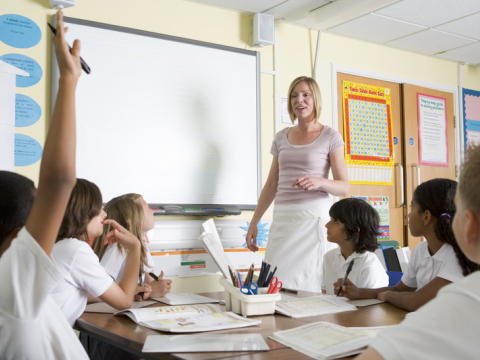

(The following is the text of a talk Lynda gave recently at a conference hosted by the Marriage, Sex and Culture Group. It describes safeguarding issues relating to Relationship, Health and Sex Education (RHSE) teaching, currently being rolled out to all schools. Parents especially need to know what their children are being taught and the harms to which they’re being exposed).
After the recent outcry over the alarming rise in child-on-child sexual assault cases, highlighted by the Everyone’s Invited website, I wrote to Gavin Williamson, Robert Halfon and Boris Johnson, drawing their attention to recent police reports of the alarming rise in cases of peer-on-peer sex abuse, some involving children as young as 5. I made the point that this had happened only as result of the premature sexualisation of children resulting from RHSE teaching over the last couple of decades and that, until very recently, although the figures for child sex abuse were high, they were almost exclusively limited to abuse by adults, both inside and outside the home, and did not involve other children.
I would like to read you part of the letter I received back from Nick Gibb, answering on behalf of the Prime Minister. He wrote: ‘Secondary school content builds on the teaching at primary school …(It) includes clear and accurate teaching about specifically sexual matters, and the need to teach about safer sex is firmly signalled. This also covers factual knowledge around sex, sexual health and sexuality, set firmly within the context of developing strong, loving relationships and resisting the pressure to have sex too soon.’
In other words, he completely ignored the points I was making. The letter I received from Gavin Williamson contained similar wording, and both seemed to take the view that the only way to keep children safe was to give them even more sex ed. Though, as a sop at the end, Nick Gibb’s letter finished, ‘Our statutory guidance is clear that, in developing and teaching RHSE content, schools must take account of the age and religious backgrounds of their pupils.’
With the greatest respect, the position being taken by Government and the Department for Education (DfE) is not just rubbish, but is State-sponsored child abuse. Yes, we live in dangerous times and children are at risk – but, whatever may be claimed, the aim of current policy is not child protection and safeguarding, but rather the promotion of an ideological agenda aimed at embedding behaviours previously regarded as hazardous, illegal, and/or evidence of mental illness. Which is why there are serious safeguarding issues which need to be urgently addressed if children are to be kept safe, and for the next few minutes I’m going to run very quickly through some of the problem areas.
First, detailed and explicit teaching on the mechanics of sex without any kind of moral frame or guidance, encourages sexual experimentation and normalises promiscuity. As part of the drive to teach safer sex, the message is drummed into children long before puberty that sex is great, when you’re ready – which can be any time from 11 on, maybe earlier, if that’s what the child wants. And they’re taught that any and all kinds of sex are good, if both people involved are happy – so teaching covers vaginal, oral, and anal sex, as well as self-stimulation and fetishism, presenting all as absolutely fine.
As I’m sure you all know, in the UK the statutory age of consent for sex is 16, meaning that sex under that age is a criminal offence, regardless of whether or not it’s consensual. But the impression being given by schools is that if children are of similar age and both want sex, that doesn’t matter, because it’s all part of their sexual rights. When you think about it, hardly surprising that we have one of the highest teen pregnancy rates in Western Europe, and that STI rates amongst teenagers are, according to doctors, at epidemic level, with the 14-25 age group recording the highest rate in the country for new infections, including syphilis, gonorrhoea, AIDS, chlamydia, herpes etc.
The point to be made is that, by normalising and encouraging sexual licence, schools are not only putting children and young people at risk, exposing them to severe and, in some cases, life-threatening harm, but they are also encouraging young people to break the law. And, contrary to what Nick Gibb said in his letter – and what’s explicitly stated in the Government Guidance – the teaching being given is at no point age-appropriate. It can’t be, because by definition giving children detailed information about sex at a time when they lack the emotional and intellectual maturity to process and evaluate what they’re being taught and to form some kind of independent moral judgment, is grooming. And if such teaching is taking account of the religious background of pupils, it can only be with the intention of undermining the tenets of that religion, because what’s being routinely taught runs contrary to the teachings of all the world’s major religions – which prohibit any and all sexual experimentation and relations outside marriage, and which explicitly categorise certain behaviours, now being promoted as part of Britain’s new values, as sin.
Second, in the drive to be inclusive, children from age 4 are being given the message that gender is a matter of choice, not biology, that they are free to choose how they identify, and that same sex relations are completely normal and great! Again, this is a form of abuse. For children, already struggling to discover who and what they are and who haven’t previously had to consider their biology, the composition of their family, and whether or not they might be gay, having to grapple with such concepts is profoundly destabilizing. Without doubt this drive to normalise and promote so-called diversity has contributed to the 4,500% increase in children seeking treatment for gender dysphoria over the last ten years (https://www.youtube.com/watch?v=sMja1ssAyRU), and to the 16% now self-identifying as bisexual (https://yougov.co.uk/topics/relationships/articles-reports/2019/07/03/one-five-young-people-identify-gay-lesbian-or-bise).
But there’s another aspect to all of this that’s equally important and, again, presents a major safeguarding issue. Recognising the susceptibility of children to influence, s.406 of the Education Act 1996, expressly forbids the promotion of partisan political views in the teaching of any subject – which clearly includes RHSE (https://www.legislation.gov.uk/ukpga/1996/56/part/V/chapter/IV/crossheading/politics). To understand why this is so important, let’s rewind a little, taking a look at some of the resources recommended by the DfE and being used in schools.
One of the organizations whose resources are expressly recommended in the Guidance for use in both primary and secondary schools is Stonewall. They’ve produced extensive anti-bullying materials, as well as lesson plans teaching children all about different families and inclusivity (e.g. https://www.stonewall.org.uk/resources/different-families-same-love-pack.) They also give bronze, silver and gold awards to schools that follow their programmes, labelling them Stonewall Champions, and they give advice to schools on how to create and implement a fully LBGT inclusive curriculum, which means that every subject gets taught from an LGBT perspective and using LGBT models e.g. in Maths, children will be asked to calculate how much it will cost Barry and Mike to take their three children on holiday. This is all deliberately designed to normalise LGBT behaviours and life-style choices to children, so that they’ll grow up accepting diversity and be tolerant.
Well okay, you might think, what’s wrong with that, apart from the obvious? On their website, Stonewall states, “We will continue to campaign and lobby governments to change laws that do not ensure equality for LGBT people, or laws that do not go far enough. We will ensure that laws already in place to protect LGBT people are not rescinded. We will work with governments and others to improve equality for trans people … and work with national bodies to ensure LGBT-inclusive policy across sectors ….” And they finish up, ‘We work … to empower institutions as advocates and agents of positive change’ (https://www.stonewall.org.uk/our-mission-and-priorities). In other words, Stonewall is a self-defined political organization, expressly working to bring about change in the law, and in society at large. But, according to s.406 of the Education Act 1996, such agencies or groups are expressly prohibited from having access to schools and from promoting their views.
Similarly with Educate and Celebrate, the group founded by Elly Barnes to provide LGBT training to schools and teachers. The Home page on the website states, ‘We equip you and your communities with the knowledge, skills and confidence to embed gender, gender identity and sexual orientation into the fabric of your organisation.’ Please note, not a word about child protection, because that’s not the aim. The aim is simply to bring about change – to indoctrinate children into the rebranded values that activists want to become normalised and embedded in society.
Under law, groups like these should not be allowed into schools, because they have an overtly political agenda that has nothing to do with child protection. They are a safeguarding hazard – yet these, and other groups, are being recommended by the DfE, as well as receiving public funds to develop programmes dedicated to changing the structure of society. It is for these reasons, and more, that VfJUK is challenging RHSE policy, and calling for urgent review.
